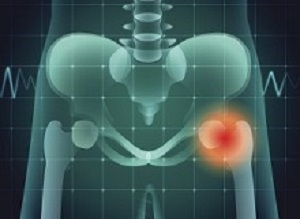 Up to two years following elective, arthroscopic hip surgery, a substantial proportion of US military patients reported troubling new health issues ranging from sleep problems, to arthritis to cardiovascular disease, found a Duke study. While such problems can be transient and diminish as full mobility returns, the findings suggest that patients and doctors should be prepared to manage a variety of complications over time, even as the surgeries themselves are considered a success.
Up to two years following elective, arthroscopic hip surgery, a substantial proportion of US military patients reported troubling new health issues ranging from sleep problems, to arthritis to cardiovascular disease, found a Duke study. While such problems can be transient and diminish as full mobility returns, the findings suggest that patients and doctors should be prepared to manage a variety of complications over time, even as the surgeries themselves are considered a success.
"Our study focused on a younger group – current and former military personnel ages 18-50 – and compared their medical records both before and after surgery," said Dr Daniel Rhon, an adjunct professor at the Duke Clinical Research Institute and lead author of the study. "Even among this younger group, the number and frequency of these hidden complications that arose after elective hip surgery suggests we should be taking a more holistic approach, proactively assessing patients for risks other than the standard surgical complications we more commonly look for," Rhon said.
Rhon and colleague – including senior author Dr Chad Cook, programme director of Duke's Doctor of Physical Therapy Programme – conducted the observational study by examining Military Health System records of 1,870 former and current service members undergoing arthroscopic hip surgery between 2004-2013. Patient records were collected for the 12 months prior to and 24 months after surgery.
In their analysis, they identified incidents of mental health disorders, chronic pain, substance abuse issues, cardiovascular ailments, metabolic syndrome, arthritis and sleep problems that were noted in the patients' medical records both before and after their elective hip surgeries.
Post-surgery incidence of all comorbidities after the procedure rose dramatically: mental health disorder increased 84%; chronic pain diagnoses soared 166%; substance abuse ticked up 57%; cardiovascular disorders rose 71%; metabolic syndrome cases rose 86%; arthritis spiked 132%; and sleep disorders jumped 111%.
"Hip arthoscopy is becoming more common even among younger people, and it can be quite successful in resolving chronic, painful conditions," Cook said. "But it's important to be prepared for a lengthy recovery. These are surgeries where people are prohibited from fully bearing weight for several weeks, so they can't exercise, they can't sleep comfortably, they are in pain."
Rhon said disruptions in sleep can be particularly problematic. Without proper rest, the sense of pain escalates, leading to a negative spiral of fatigue and pain that then depresses mood, energy levels and general health. "These issues are compounding on each other," Rhon said. "Our study serves as an important alert to both doctors and patients. Armed with this knowledge, we can be vigilant in addressing these problems earlier and potentially stopping others from developing."
The research received support from the US Defence Health Agency.
Abstract
Objectives: We aimed to identify the rate of seven comorbidities (mental health disorders, chronic pain, substance abuse disorders, cardiovascular disorders, metabolic syndrome, systemic arthropathy and sleep disorders) that occurred within 2 years after hip arthroscopy.
Methods: Data from individuals (ages 18–50 years) undergoing arthroscopic hip surgery between 2004 and 2013 were collected from the Military Health System (MHS) Data Repository (MDR). The MDR captures all healthcare encounters in all settings and locations for individuals within the MHS. Person-level data over 36 months were pulled and aggregated. Seven comorbidities related to poor outcomes from musculoskeletal disorders (mental health disorders, chronic pain, substance abuse disorders, cardiovascular disorders, metabolic syndrome, systemic arthropathy and sleep disorders) were examined 12 months prior and 24 months after surgery. Changes in frequencies were calculated as were differences in proportions between presurgery and postsurgery.
Results: 1870 subjects were identified (mean age 32.24 years; 55.5% men) and analysed. There were statistically significant increases (p<0.001) proportionally for all comorbidities after surgery. Relative to baseline, cases of mental health disorders rose 84%, chronic pain diagnoses increased 166%, substance abuse disorders rose 57%, cardiovascular disorders rose by 71%, metabolic syndrome cases rose 85.9%, systemic arthropathy rose 132% and sleep disorders rose 111%.
Conclusions: Major (potentially ‘hidden’) clinical comorbidities increased substantially after elective arthroscopic hip surgery when compared with preoperative status. These comorbidities appear to have been overlooked in major studies evaluating the benefits and risks of arthroscopic hip surgery.
Authors
Daniel I Rhon, Tina A Greenlee, Bryant G Marchant, Charles Dennis Sissel, Chad E Cook
[link url="https://corporate.dukehealth.org/news-listing/hidden-health-problems-can-appear-two-years-after-elective-hip-surgeries?h=nl"]Duke University Medical Centre[/link]
[link url="https://bjsm.bmj.com/content/early/2018/09/26/bjsports-2018-099294"]British Journal of Sports Medicine abstract[/link]
